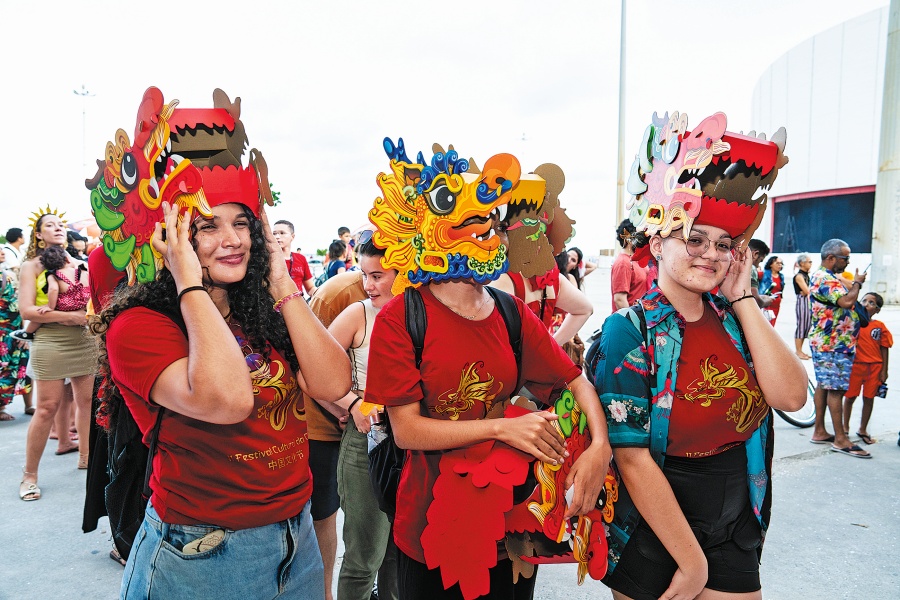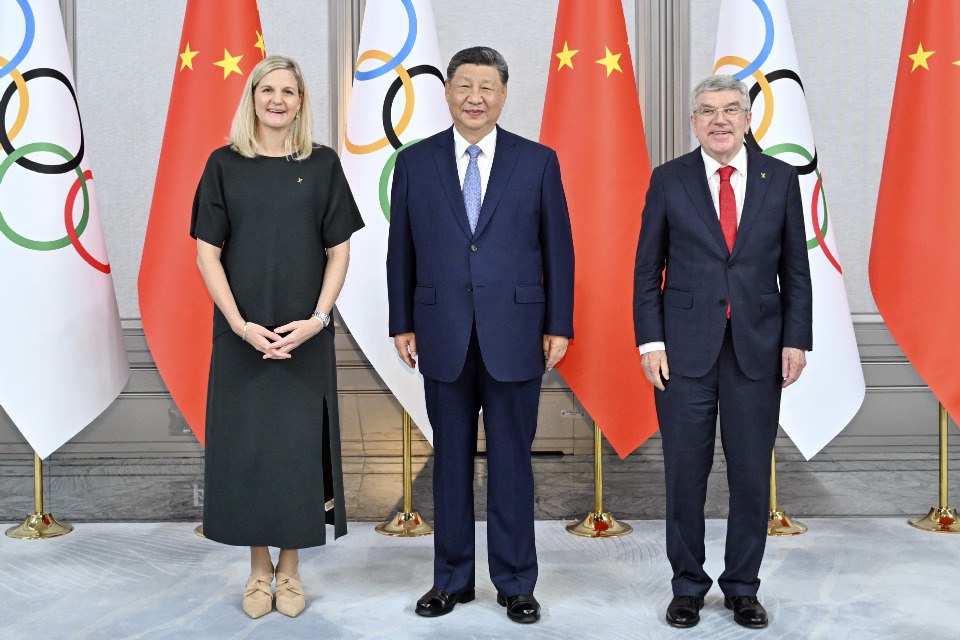Spring Festival becomes an intangible cultural heritage of humanity


Museums across China have been posting animated videos on Weibo featuring singing and dancing cultural relics to celebrate the recent decision made by the United Nations Educational, Scientific and Cultural Organization to put the Spring Festival on the Heritage List. Dating back centuries, the Spring Festival is the most important holiday in Chinese culture. It is a time when families gather together to usher in a new year on the lunar calendar, and has become a symbol of reunion and renewal. Traditions such as hanging spring couplets and giving children red envelopes embody the Chinese people's simple wish for a better, or more auspicious, life.
For Chinese people around the world, these cultural practices bring back fond memories of childhood or ancestry. For other members of the global village, they offer a glimpse into the charm of an ancient Eastern culture. The festival has inspired similar celebrations in a number of other Asian cultures — a product and contribution of cross-cultural exchange.
Making the Spring Festival an intangible cultural heritage of humanity is culturally significant in many ways. In addition to celebrating the rich traditional Chinese culture, it boosts empathy among people of different backgrounds.
In the cultural mosaic of the world, the Spring Festival provides an opportunity for people to understand and appreciate one another. With Chinese communities across the world celebrating the Spring Festival, the culture mix of the host country is enriched. Local people come to see the commonality between the Chinese culture and their own. Understanding is the first step to acceptance, and only with acceptance can there be peace and prosperity.
Championing cultural equality
Putting the Spring Festival on the Heritage List is a vote for inclusiveness and mutual learning of cultures. It reminds us of how cultures, despite their differences, can draw on each other's merits and coexist as equals.
The Global Civilization Initiative calls for respecting the diversity of civilizations and promoting exchange among civilizations. This is all the more relevant in a time when some are still touting the superiority of certain civilizations or the clash of civilizations. Such claims neglect the unique value of each culture. A belief in hierarchy omens cultural exclusivity and even worse — if not the worst — confrontation.
The world today faces multiple threats such as climate change and epidemics that respect no border and cannot be addressed by any single country alone. China's vision of building a community with a shared future for mankind emphasizes the necessity of mutually beneficial cooperation to address these global challenges. Putting the Spring Festival on the Heritage List underscores the essential role of harmony among diverse cultures in realizing this vision.
The people-to-people bonds forged in celebrating traditional festivals across various cultures garner moral support for a shared future. With values of family, hope and unity, the Spring Festival of China shares similarities to many other traditional celebrations in the world and is indeed a common legacy of humanity.
Today, Spring Festival activities have been held in some 200 countries and regions across the world. They help us see that there is more that unites us than divides us. In a time rife with both challenges and hope, may the Spring Festival give us strength to come together for a shared future for mankind.
Yi Fan is a Beijing-based international affairs commentator.
The views don't necessarily represent those of China Daily.
If you have a specific expertise, or would like to share your thought about our stories, then send us your writings at opinion@chinadaily.com.cn, and comment@chinadaily.com.cn.


































